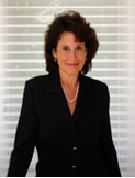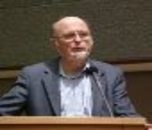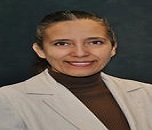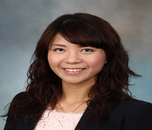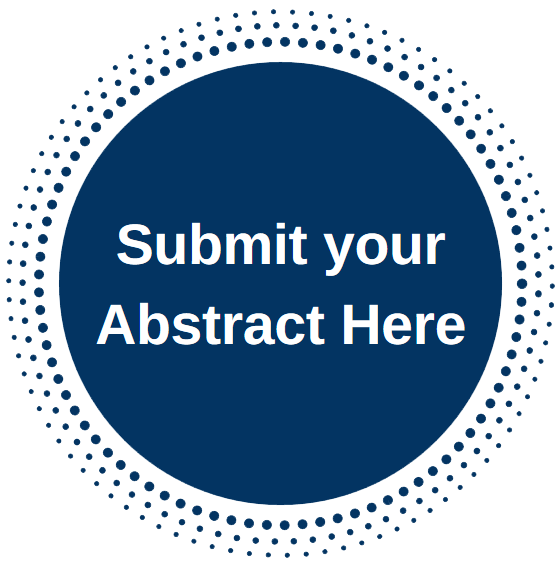Session/Tracks
Track 1: Vascular Dementia
Vascular Dementia is the second most basic reason for dementia in more seasoned individuals. Since it has a lower profile than Alzheimer's, numerous individuals don't speculate vascular dementia when neglect gets hazardous. It's likewise hard to analyze so it's hard to realize precisely what number of individuals experience the ill effects of vascular dementia.
Dementia can be part into two groups depend upon which part of the brain is influenced.
-
Cortical dementias
-
Subcortical dementias
Keywords - Vascular Dementia 2020 | Dementia 2020 | Alzheimer Conference | Dementia Conference | Brain Disorder Conference | Vascular Dementia Conference | Top Conference in Europe | Neurology conference | Vascular dementia Congress | Dementia Summit 2020 | Dementia Event | Global Event| Neurological Disorders Conference | Neurology Meeting 2020
Track 2: Dementia Stages
Dementia is an umbrella term used to portray a few unique sorts of intellectual decay. Various types of dementia have their own indications and examples of movement. Dementia is additionally an individual encounter, so perceive that the side effects and pace of sickness movement can likewise shift broadly crosswise over individuals.
The 3-Stage Model of Dementia: Mild or Early Stages
-
Alzheimer’s Disease
-
Vascular Dementia
-
Dementia with Lewy Bodies (LBD)
Keywords - Vascular Dementia 2020 | Dementia 2020 | Alzheimer Conference | Dementia Conference | Brain Disorder Conference | Vascular Dementia Conference | Top Conference in Europe | Neurology conference | Vascular dementia Congress | Dementia Summit 2020 | Dementia Event | Global Event| Neurological Disorders Conference | Neurology Meeting 2020
Track 3: Alzheimers Disease
Alzheimer's illness is an irreversible, dynamic mind issue that gradually obliterates memory and thinking aptitudes and, in the long run, the capacity to complete the easiest assignments. In the vast majority with the infection-those with the late-beginning sort-indications initially show up in their mid-60s. Early-beginning Alzheimer's happens between an individual's 30s and mid-60s and is extremely uncommon. Alzheimer's sickness is the most well-known reason for dementia among more established grown-ups.
Signs and Symptoms of Alzheimer's:
-
Memory loss that disrupts daily life
-
Challenges in planning or solving problems
-
Difficulty completing familiar tasks
-
Confusion with time or place
-
New problems with words in speaking or writing.
Keywords - Vascular Dementia 2020 | Dementia 2020 | Alzheimer Conference | Dementia Conference | Brain Disorder Conference | Vascular Dementia Conference | Top Conference in Europe | Neurology conference | Vascular dementia Congress | Dementia Summit 2020 | Dementia Event | Global Event| Neurological Disorders Conference | Neurology Meeting 2020
Track 4 : Parkinson disease
Parkinson's disease is a brain disorder that leads to shaking, stiffness, difficulty in balancing and coordinating. Parkinson's disease occurs when nerve cells, or neurons, in an area of the brain that controls movement become impaired and/or die. Usually, these neurons produce brain chemical known as dopamine. Symptoms start gradually, sometimes starting with a noticeable tremor in just one hand. Tremors are common, but the disorder commonly causes stiffness or slowing of movement of the body parts. Parkinson's disease symptoms can be different for individuals.
Keywords - Vascular Dementia 2020 | Dementia 2020 | Alzheimer Conference | Dementia Conference | Brain Disorder Conference | Vascular Dementia Conference | Top Conference in Europe | Neurology conference | Vascular dementia Congress | Dementia Summit 2020 | Dementia Event | Global Event| Neurological Disorders Conference | Neurology Meeting 2020
Track 5 : Dementia with Lewy Body(DLB)
Lewy body dementia (LBD) is a disease related with abnormal deposits of a protein called alpha-synuclein in the brain. These deposits, called Lewy bodies, affect chemicals in the brain that leads to problems with thinking, movement, behavior, and mood. The most common causes of dementia is Lewy body dementia. Dementia with Lewy Bodies (DLB) may account for 10-15 per cent of all cases of dementia. DLB can be recognized wrongly and is usually mistaken for Alzheimer's disease.
Keywords - Vascular Dementia 2020 | Dementia 2020 | Alzheimer Conference | Dementia Conference | Brain Disorder Conference | Vascular Dementia Conference | Top Conference in Europe | Neurology conference | Vascular dementia Congress | Dementia Summit 2020 | Dementia Event | Global Event| Neurological Disorders Conference | Neurology Meeting 2020
Track 6: Frontotemporal Dementia
Frontotemporal dementia is more common in people under the age of 65 and is caused by pathological changes in the front and temporal lobes of the brain. There are different types of frontotemporal dementia, but symptoms can include changes in personality, behaviour and speech difficulties. Treatment is also dependent on symptoms and may include antidepressant medication. Acetylcholinesterase inhibitors are not recommended as they may be harmful.
Keywords - Vascular Dementia 2020 | Dementia 2020 | Alzheimer Conference | Dementia Conference | Brain Disorder Conference | Vascular Dementia Conference | Top Conference in Europe | Neurology conference | Vascular dementia Congress | Dementia Summit 2020 | Dementia Event | Global Event| Neurological Disorders Conference | Neurology Meeting 2020
Track 7: Aging and Stroke
Practically 42% of individuals beyond 64 years old experience some type of memory misfortune. When there is no basic ailment causing this memory misfortune, it is known as "age-related memory hindrance," which is viewed as a piece of the ordinary maturing process.
A stroke is an abrupt break in the blood supply of the cerebrum. Most strokes are brought about by a sudden blockage of supply routes prompting the mind (ischemic stroke). Different strokes are brought about by seeping into mind tissue when a vein blasts (hemorrhagic stroke). Since stroke happens quickly and requires prompt treatment, stroke is additionally called a cerebrum assault. At the point when the side effects of a stroke last just a brief timeframe (not exactly 60 minutes), this is known as a transient ischemic assault (TIA) or smaller than normal stroke.
Stroke symptoms
-
Confusion
-
Paralysis
-
Numbness or weakness in the arm, face, and leg, especially on one side of the body
-
Loss of balance or coordination
Keywords - Vascular Dementia 2020 | Dementia 2020 | Alzheimer Conference | Dementia Conference | Brain Disorder Conference | Vascular Dementia Conference | Top Conference in Europe | Neurology conference | Vascular dementia Congress | Dementia Summit 2020 | Dementia Event | Global Event| Neurological Disorders Conference | Neurology Meeting 2020
Track 8: Geriatrics Dementia and Cognitive Disorders
Geriatrics or geriatric drug might be a forte that spotlights on human services of more established individuals. It expects to push wellbeing by avoiding and treating infections and inabilities in more seasoned grown-ups. there's no set age at that patients are additionally underneath the consideration of an expert or geriatric MD; a MD Joined Countries office makes a claim to fame of the consideration of more seasoned individuals. Or maybe, this call is set by the individual patient's needs, and along these lines the accessibility of a pro. It's imperative to see the qualification between gerontology, the consideration of matured individuals, and geriatrics, that will be that the investigation of the maturing technique itself.
Keywords - Vascular Dementia 2020 | Dementia 2020 | Alzheimer Conference | Dementia Conference | Brain Disorder Conference | Vascular Dementia Conference | Top Conference in Europe | Neurology conference | Vascular dementia Congress | Dementia Summit 2020 | Dementia Event | Global Event| Neurological Disorders Conference | Neurology Meeting 2020
Track 9: Brain Disorder
Brain is one of the largest, complexes and sensitive organ made up of 100 billion nerves, minutes can cause several brain disorders. It controls thoughts, memory, speech, and movement of the body. When your brain is damaged or affected, it can affect many different things such as your memory, movement, sensation, and personality. Brain disorders include any conditions or disabilities that affect your brain. These include conditions that can be caused by: illness, genetics or traumatic injury.
Keywords - Vascular Dementia 2020 | Dementia 2020 | Alzheimer Conference | Dementia Conference | Brain Disorder Conference | Vascular Dementia Conference | Top Conference in Europe | Neurology conference | Vascular dementia Congress | Dementia Summit 2020 | Dementia Event | Global Event| Neurological Disorders Conference | Neurology Meeting 2020
Track 10: Dementia Nursing and Dementia Care Management
Exact analysis of dementia, discouragement or ridiculousness is the way to address treatment, and attendants in any setting who are perceptive, compassionate and trusted by patients are obviously put to distinguish issues. Individuals with dementia will have a sense of security with a trusted and natural attendant, and be increasingly ready to
-
Talk really about their worries;
-
Enable the medical caretaker to assist them with individual care.
Dementia care the executives is a model of shared consideration, characterized as a mind boggling mediation expecting to give ideal treatment and care to patients with dementia and bolster parental figures utilizing a PC helped appraisal deciding a customized exhibit of intercession modules and resulting achievement checking.
Keywords - Vascular Dementia 2020 | Dementia 2020 | Alzheimer Conference | Dementia Conference | Brain Disorder Conference | Vascular Dementia Conference | Top Conference in Europe | Neurology conference | Vascular dementia Congress | Dementia Summit 2020 | Dementia Event | Global Event| Neurological Disorders Conference | Neurology Meeting 2020
Track 11: Animal Models in dementia
Animal models of Advertisement incorporate both transgenic animals just as normal, non-transgenic models of Promotion. Together, these creature models can be utilized to mimic Advertisement pathology to comprehend infection movement.
Important consideration utilizing, particularly, rat models, is the distinction in their cerebrum masses: a mouse mind is about 0.4 g while a human cerebrum is around 1300 - 1400 g, a very critical contrast. The disappointment of helpful improvement for Alzheimer's ailment for as far back as four decades has driven scientists to address the estimation of the present models, yet additionally on utilizing creature models in any case by any stretch of the imagination.
Keywords - Vascular Dementia 2020 | Dementia 2020 | Alzheimer Conference | Dementia Conference | Brain Disorder Conference | Vascular Dementia Conference | Top Conference in Europe | Neurology conference | Vascular dementia Congress | Dementia Summit 2020 | Dementia Event | Global Event| Neurological Disorders Conference | Neurology Meeting 2020
Track 12: Amyloid Imaging
Amyloid PET imaging speaks to a potential serious step forward in the evaluation of those with psychological hindrance. The sweep pictures plaques present in the cerebrum, which are prime suspects in harming and murdering nerve cells in Alzheimer's. Prior to amyloid PET, these plaques must be distinguished by inspecting the cerebrum at post-mortem.
Keywords - Vascular Dementia 2020 | Dementia 2020 | Alzheimer Conference | Dementia Conference | Brain Disorder Conference | Vascular Dementia Conference | Top Conference in Europe | Neurology conference | Vascular dementia Congress | Dementia Summit 2020 | Dementia Event | Global Event| Neurological Disorders Conference | Neurology Meeting 2020
Track 13: Novel therapeutics
One of the most energizing utilizations of data ​processing frameworks is in diagnostics and treatment. This isn't amazing, given that sickness determination is in its center a data handling task that comes full circle with a choice. In numerous sicknesses, the finding can be performed in singular cells. In malignant growth, for instance, each cell can be delegated "solid" or "tumor". A perfect against ​tumor remedial ought to be fit for focusing on just the tumor cells; to do as such, the restorative operator should have the option to run its own "determination" as it experiences patient's cells. In this manner, the selectivity can be accomplished not really by means of the dynamic fixing that slaughters tumor cells, however by the upstream instrument that decides if the fixing ought to be enacted by any means.
Keywords - Vascular Dementia 2020 | Dementia 2020 | Alzheimer Conference | Dementia Conference | Brain Disorder Conference | Vascular Dementia Conference | Top Conference in Europe | Neurology conference | Vascular dementia Congress | Dementia Summit 2020 | Dementia Event | Global Event| Neurological Disorders Conference | Neurology Meeting 2020
Track 14: Neurodegenerative Diseases
Neurodegenerative sickness is an umbrella term for a scope of conditions which principally influence the neurons in the human cerebrum. Neurons are the structure squares of the sensory system which incorporates the mind and spinal string. Neurons ordinarily don't duplicate or supplant themselves, so when they become harmed or kick the bucket they can't be supplanted by the body. Instances of neurodegenerative maladies incorporate Parkinson's, Alzheimer's, and Huntington's infection.
The neurodegenerative sicknesses that JPND centers around are
-
Alzheimer's infection (Advertisement) and different dementias
-
Parkinson's infection (PD) and PD-related issue
-
Prion malady
-
Engine neurone illnesses (MND)
-
Huntington's illness (HD)
-
Spinocerebellar ataxia (SCA)
-
Spinal solid decay (SMA)
Keywords - Vascular Dementia 2020 | Dementia 2020 | Alzheimer Conference | Dementia Conference | Brain Disorder Conference | Vascular Dementia Conference | Top Conference in Europe | Neurology conference | Vascular dementia Congress | Dementia Summit 2020 | Dementia Event | Global Event| Neurological Disorders Conference | Neurology Meeting 2020
Track 15: Recent Advancement in Treating Dementia
NIA is the essential Government organization supporting and directing Alzheimer's infection investigate. The Establishment additionally bolsters a lot of work on psychological wellbeing and related dementias. The following is a posting of the absolute most critical NIA-bolstered explore discoveries about intellectual wellbeing, Alzheimer's infection, and related dementias from the most recent ten years. Advances, for example, these keep on pushing analysts nearer and nearer to one day finding how we may adequately forestall and treat dementia.
-
Disease-Modifying Therapies
-
Passive Immunotherapy
-
BACE Inhibitors
-
Other Treatment Avenues
-
Symptom-Controlling Treatments
-
Enhancing Cognition
-
Non-Cognitive Enhancing Agents
Keywords - Vascular Dementia 2020 | Dementia 2020 | Alzheimer Conference | Dementia Conference | Brain Disorder Conference | Vascular Dementia Conference | Top Conference in Europe | Neurology conference | Vascular dementia Congress | Dementia Summit 2020 | Dementia Event | Global Event| Neurological Disorders Conference | Neurology Meeting 2020
Track 16: Causes and Prevention of Dementia
Dementia is caused by damage or loss of nerve cells or their connections in the brain. Depending on affected area, dementia can affect people differently and cause different symptoms. This damage the ability of brain cells to communicate with each other. The common causes of dementia include is degenerative neurological diseases include Alzheimer's disease, Parkinson's disease, Huntington's disease, and some types of multiple sclerosis ;Vascular disorders; Traumatic brain injuries caused by car accidents, falls, etc; Infections of the central nervous system; Long-time alcohol or drug use and certain types of hydrocephalus, a build-up of fluid in the brain.
Keywords - Vascular Dementia 2020 | Dementia 2020 | Alzheimer Conference | Dementia Conference | Brain Disorder Conference | Vascular Dementia Conference | Neurology conference | Vascular dementia Congress | Dementia Summit 2020 | Dementia Event | Global Event| Neurological Disorders Conference | Neurology Meeting 2020
Track 17: Neuropharmacology
Neuropharmacology is the study of the effects of drugs on the nervous system, with the goal of developing compounds that offer therapeutic benefit in humans with psychiatric and neurological disease. We believe that an understanding of a drug’s action requires an integrated knowledge of the cellular and molecular mechanisms by which the drug exerts its effects upon brain circuitry and ultimately human behaviour.
Neuropharmacology deals with drugs that influence processes that are regulated by the nervous system; thus correct various imbalances in the body’s functioning via neural control.
Keywords - Vascular Dementia 2020 | Dementia 2020 | Alzheimer Conference | Dementia Conference | Brain Disorder Conference | Vascular Dementia Conference | Neurology conference | Vascular dementia Congress | Dementia Summit 2020 | Dementia Event | Global Event| Neurological Disorders Conference | Neurology Meeting 2020
Track 18: Neuro Oncology and CNS
It is a branch of Medical Sciences majorly deals with Neuro tumours. Deals with Studies related to Brain and Spinal cord neoplasms. Neuro-oncology and Pediatric Neuro-oncology are the two different Concepts that differentiate the determining methodology of Neuro tumours. Neuro-oncology chiefly incorporates particularly related points like Radiation treatment, Neurosurgery, Neuroimaging, social, Psychological, Neuropathology and mental viewpoints.
Signs and symptoms of dementia
• Spine Cancer and Spine Cancer Treatment
• Glioblastoma
• Meningioma
• Brain Stem Tumours
Keywords - Vascular Dementia 2020 | Dementia 2020 | Alzheimer Conference | Dementia Conference | Brain Disorder Conference | Vascular Dementia Conference | Neurology conference | Vascular dementia Congress | Dementia Summit 2020 | Dementia Event | Global Event| Neurological Disorders Conference | Neurology Meeting 2020
Track 19: Vascular Cognitive Impairment
Vascular cognitive impairment is a decrease in thinking abilities due to disease that harms the brain's veins. Vascular sickness may cause cognitive impairment and can likewise add to disabilities in thinking and behaviour in an individual with another brain disease, for example, Alzheimer's. The term vascular cognitive impairment was introduced around start of the new millennium and refers to the contribution of vascular pathology to any severity of cognitive impairment, ranging from subjective cognitive decline and mild cognitive impairment to dementia.
Keywords - Vascular Dementia 2020 | Dementia 2020 | Alzheimer Conference | Dementia Conference | Brain Disorder Conference | Vascular Dementia Conference | Neurology conference | Vascular dementia Congress | Dementia Summit 2020 | Dementia Event | Global Event| Neurological Disorders Conference | Neurology Meeting 2020
Track 20: Clinical Trials and Drug Development
No medication can cure dementia. But some may help with some of the symptoms for a time. But doctors may prescribe other meds to treat problems caused by dementia, such as depression, trouble sleeping.
The two commonly prescribed medicines for dementia are cholinesterase inhibitors and memantine (Namenda). Doctors use them mainly to treat the symptoms of Alzheimer’s disease, which is the most common form of dementia. They prefer them for other kinds of dementia as well.
Keywords - Vascular Dementia 2020 | Dementia 2020 | Alzheimer Conference | Dementia Conference | Brain Disorder Conference | Vascular Dementia Conference | Neurology conference | Vascular dementia Congress | Dementia Summit 2020 | Best conference Zurich | Dementia Event | Global Event| Neurological Disorders Conference | Neurology Meeting 2020
Market Analysis
With the successful completion of Vascular Dementia 2019, we are proud to announce our next event Vascular Dementia 2020 that would be held during June 24-25, 2020. On behalf of the Committee of Vascular Dementia 2020, we are delighted to welcome attendees, exhibitors and presenters all over the world to our conference venue Zurich, Switzerland.
Dementia is a general term for sicknesses and conditions portrayed by a decrease in memory, language, critical thinking and other reasoning aptitudes that influence an individual's capacity to perform ordinary exercises. Memory misfortune is a model. Alzheimer's is the most common cause of dementia.
This gathering will build information, offer help, help learning and enable families and carers to search out relevant administrations for their adored one and to build up the most ideal home condition to help recuperation from this mind boggling and decimating maladies.
The proportions of those with different forms of dementia can be broken down as follows:
-
Alzheimer's disease
-
Vascular dementia
-
Mixed dementia
-
Lewy-body dementia
-
Fronto-temporal dementia
-
Creutzfeldt-Jakob disease
-
Wernicke-Korsakoff syndrome
-
Parkinson's dementia
-
Other
Importance and Scope:
The treatment for global market in evaluation of syndromes for vascular dementia, with the movement disorders values are of range 10.5 billion in 2011 that reach $11.1 billion in 2012. Total market value that is expected to reach $16.7 billion in 2017 with raise at a five-year compound annual growth rate (CAGR) of 8.5%.
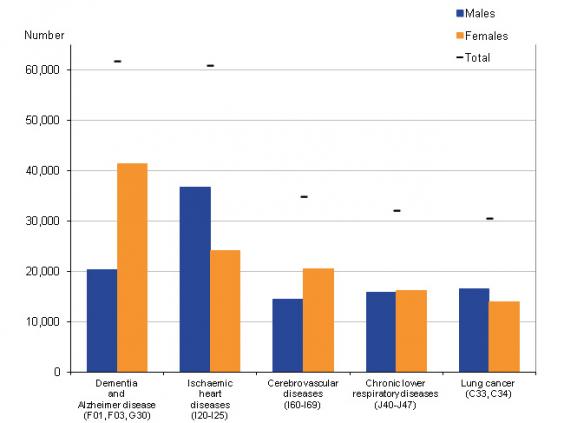
From every corner of the world, someone develops dementia every 3 seconds. This was an estimated value at 46.8 million people worldwide living with dementia in 2015 and the number is expected to be close to 50 million people in 2017. This number may double every 20 years, reaching 75 million in 2030 and 131.5 million in 2050. Mostly it is observed too be increased in developing countries. For now, 58% of people with dementia are living in low and middle income countries, may be, by 2050 this can rise to 68%.
Worldwide results of current meta-analysis reveal 44 million people (worldwide) suffered with Vascular dementia during 2010 and expected to double every 20 years, to the number 65.7 million in 2030 and 115.4 million in 2050. In 2010, 58 per cent of all people with low or middle incomes were with dementia lived in countries. This proportion anticipated in increase to 63 per cent in 2030 and 71 per cent in 2050.The values are expected to double by 2030 and triple by 2050 to 115 million.
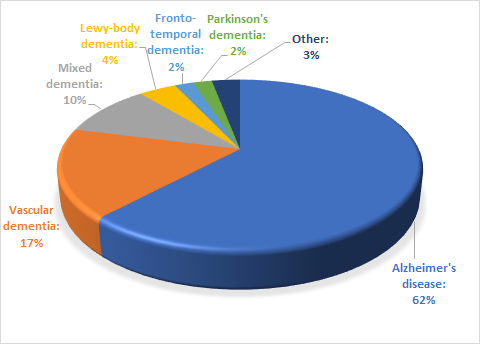
Vascular Dementia, otherwise called multi-infarct dementia is the second most basic reason for dementia in more seasoned individuals. Since it has a lower profile than Alzheimer's, numerous individuals don't speculate vascular dementia when neglect gets hazardous. It's likewise hard to analyze so it's hard to realize precisely what number of individuals experience the ill effects of vascular dementia. Current gauges credit 15% to 20% of dementia cases in more established grown-ups to vascular dementia.About 9.7% vascular dementia cases in Switzerland.
Vascular Dementia 2020 provides a good platform where everyone will be sure having a meaningful experience with scholars, experts across the globe.
Target Audience
-
Directors
-
Head of Department
-
Professors
-
Industrial
-
Neurologist
-
Neuroscientist
-
Neurosurgeons
-
Psychiatrist
-
Nutritional Scientists
-
Students from Academia in the research of Neurology, Nutrition
Top Hospitals Associated with Vascular Dementia Reserch in World
-
John Hopkins Medicine
-
Siloam Hospital
-
Mayo Clinic
-
The Mount Sinai Hospital
-
Jefferson Hospital for Neuroscience
-
Neurology Florida Hospital
-
UNM Neurology Centre
-
Tampa General Hospital
-
Huntington Hospital
-
EI Camino Hospital
-
Massachusetts General Hospital
Past Conference Report
Vascular Dementia 2019
The “12th International Conference on Vascular Dementia’’ hosted by Conference Series llc LTD during July 22-23, 2019 London, UK with a theme “New and Emerging Target Therapies in Vascular Dementia”, was a great success where eminent Keynote Speakers from various reputed institutions with their resplendent presence addressed the gathering.
It was organized by Conference Series llc LTD and generous response was received from the Editorial Board Members of OMICS Group Journals as well as from eminent scientists, talented researchers and young student community. Researchers and students who attended from different parts of the world made the conference one of the most successful and productive events in 2019 from Conference Series llc LTD.
The two day program witnessed thought provoking keynote and plenary presentations from experts in the field of Dementia and neuroscience.
The conference proceedings were carried out through various Scientific-sessions and plenary lectures, of which the following Speakers were highlighted as Keynote Speakers:
-
Gjumrakch Aliev, GALLY” International Biomedical Research Institute Inc., San Antonio, TX, USA
-
Natasa Radojkovic Gligic, University of Belgrade, Serbia
All the sessions were followed with great interest by a large audience. Students from various parts of the world took active participation in poster presentations. Students who presented well were awarded with Best Poster Presentations for their outstanding contribution in the field of Dementia.
We are also obliged to various delegate experts, company representatives and other eminent personalities who supported the conference by facilitating active discussion forums. We sincerely thank the Organizing Committee Members for their gracious presence, support, and assistance towards the success of Vascular Dementia Summit 2019. With the unique feedback from the conference, we would like to announce the commencement of the "13th International Conference on Vascular Dementia and Dementia” is going to be held during June 24-25, 2020.
Past Reports Gallery
